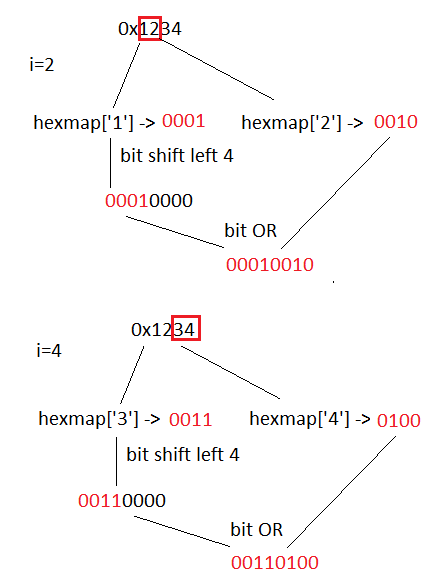
Returns an integer number after converting the input argument value using its required _int_() method for the conversion.

The base argument determines how the string argument is interpreted. If you set the base, the value argument must be a string. The value object must have an _int_() method that returns the associated integer number-otherwise a TypeError will be raised.Īn optional integer argument base to define the base of the numerical system in the value argument. If you don’t have a hex string but a hex number-called a literal-such as 0xff, you don’t even need the int() function because Python will automatically convert it to a decimal number: > 0x10Ģ55 Background int() Syntax: int(value ) -> int ArgumentĪ Python object to be converted into an integer number. Yet, you still have to set it to 0 so the benefit is marginal in practice. This uses the prefix to determine the base automatically-without you needing to set it to 16. You can pass a prefixed string '0x.' into the int() function and set the base to 0 to switch on base guessing in Python. In fact, you can specify the base argument as 0 to switch on base guessing-which should be the default behavior anyway! Base Guessing 💡 Note: Even though passing a prefixed string '0x.' into the int() function is unambiguous, Python’s int() function doesn’t accept it if you don’t also define the base. It assumes that the input string is in base 10 when in fact, it isn’t. ValueError: invalid literal for int() with base 10: '0x28' However, skipping the base but leaving the prefix raises a ValueError: invalid literal for int() with base 10: '0x28': > int('0x28') You actually don’t need to use the prefix '0x' because your second argument already defines unambiguously that the given string is a hexadecimal number: > int('0', base=16) Here’s a minimal example: > int('0xff', base=16)Īnd here’s how you can convert the additional examples shown above: > int('0x0', base=16) The int() function will then convert the hex string to an integer with base 10 and return the result. Users can also convert plain english data File to Hex by uploading the file. Just paste your string in the form below and it will instantly get converted to hex values. Click on the URL button, Enter URL and Submit. Worlds simplest online string to hexadecimal numbers converter. This tool allows loading the Text data URL, which loads String and converts to Hex.

Use base=16 as a second argument of the int() function to specify that the given string is a hex number. This tool saves your time and helps to convert plain text to Hex number system with ease. To convert a hexadecimal string to an integer, pass the string as a first argument into Python’s built-in int() function.
CONVERT STRING TO HEXADECIMAL HOW TO
How to convert the hex string to an integer in Python?įor example, you want to convert the hexadecimal string '0xff' to the decimal integer 255.Ġx28 -> 40 Hex String to Integer using int() with base 16 Given a string in hexadecimal form: s = '0xff' Hex String to Integer using int() with base 16.


 0 kommentar(er)
0 kommentar(er)
